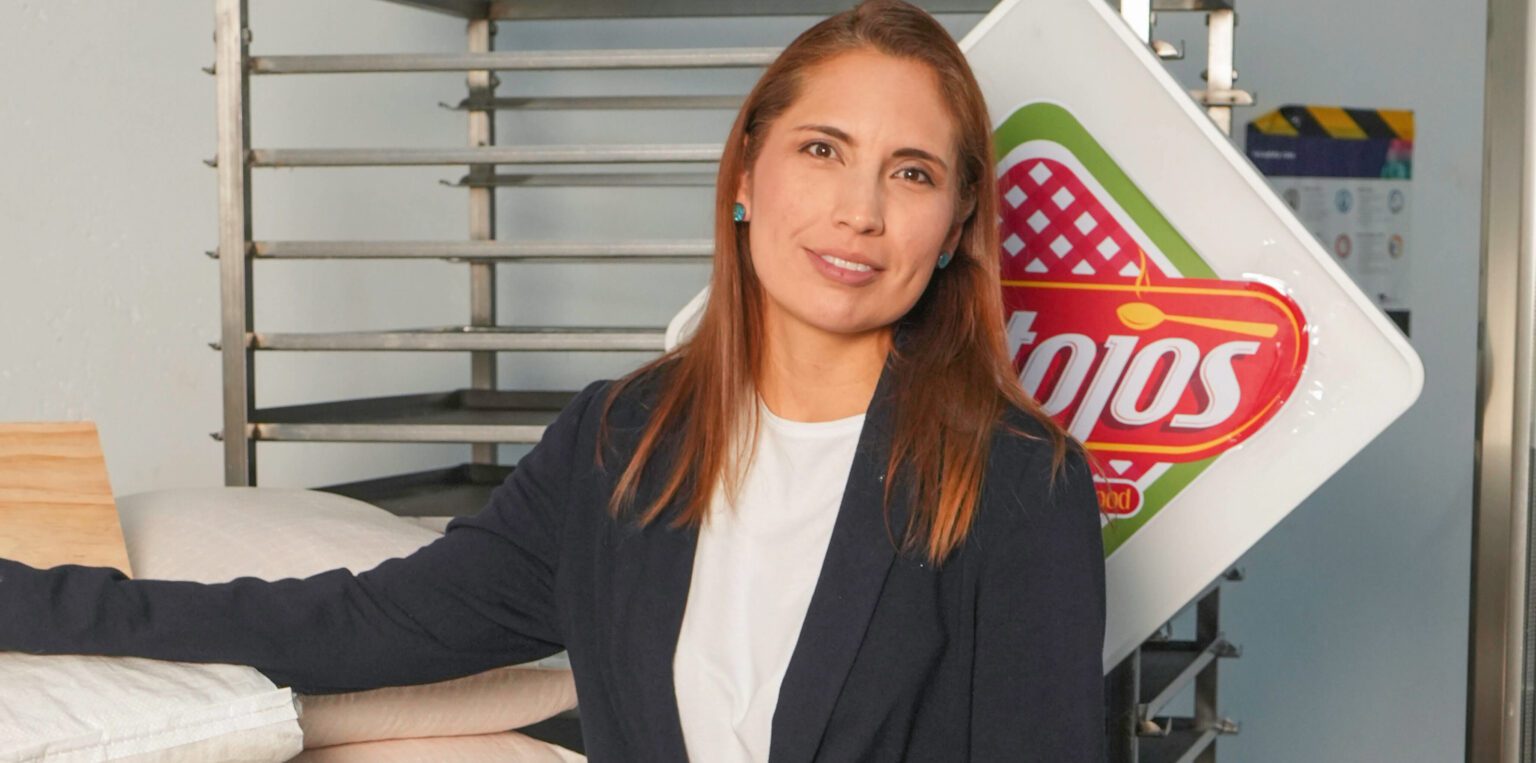Lina María Pérez Sánchez, co-founder of Antojos Group, is on a quest to make Australia a go-to place for arepas (a Colombian bread alternative). Her authentic, chemical-free offerings have already earned her a devoted community of food-lovers in Melbourne.
At a glance
A small business loan and a line of credit have helped Lina María Pérez Sánchez from Antojos Group to:
- Buy and import a special machine from Colombia to make authentic arepas
- Manage cashflow in the business
- Get ready to open a café then quickly pivot the business during the pandemic
Lina and her husband Camilo initially had no plans to start a business.
The couple had moved to Melbourne from Colombia in 2009 when a friend asked them to make arepas to sell at a Latin festival. The arepas – an ancient Colombian chemical-free bread alternative – were such a hit that Lina and Camilo launched a side hustle, Antojos Group (Antojos means ‘craving’ in Spanish).
The brand quickly became popular with locals and the South American community. “We were both studying and had full-time jobs but people were clamouring for our arepas as they’re hard to get anywhere else, so we built up a good side business with extra income, working a couple of hours a day,” says Lina.
The power of community
After putting the business on hold when the couple briefly moved to Queensland, they returned to Melbourne in 2014 where their previous customers begged them to make their arepas once again because there was nothing like them available.
They relaunched Antojos, initially working part-time in the business before committing to full-time in 2015. “It was scary leaving the security of a full-time job,” admits Lina. “Camilo left his first, then I joined him six months later, so we had a bit of a cushion.”
The business grew steadily despite having no website or marketing activities: Customers placed their orders via text message and either collected the frozen packets of arepas or requested delivery.
Lina says the company’s success is due to the strong bonds they have with the community. “People see us as their friends and they tell their friends and family about us.”
Antojos has now expanded into selling their products to food services and cafés, as well as a catering arm.
Pivoting to survive
In early 2020, Lina and Camilo were poised to open their own café when the pandemic hit. “We were heartbroken as we’d spent three years setting everything up but we realised it was too risky to open,” says Lina. “We spent the next year protecting the business so we could survive. Fortunately, we could still deliver to customers, even during lockdowns.”
The couple have had to continue to pivot as inflation has seen supplier costs skyrocket. Rather than pass on these costs to customers, Lina and Camilo made smaller arepas and added more to each packet for the same price.
“Arepas aren’t a luxury – they’re a basic staple,” says Lina. “Our community were telling us they’ve lost their jobs or they’re on a tighter budget and are struggling, so we couldn’t increase our prices like everyone else,” says Lina. “It’s more important to look after my community.”
Despite having to absorb some of the extra costs, the business has remained stable and is starting to grow.
Growing with Prospa’s help
In 2017 when Lina and Camilo started to explore opening a café, they needed funds for equipment, including a specialist machine from Colombia. When Lina experienced difficulties getting funds from a traditional lender, a friend recommended Prospa and she applied for a small business loan.
“Dealing with Prospa has been hassle-free,” she says. “My experience with traditional banks has been really stressful. It takes ages, requires so much paperwork and so many people have to be involved in the process. With Prospa, it was quick, straightforward and supportive.”
Since then, Lina has refinanced with Prospa to help with buying additional equipment and managing cashflow. She currently has a line of credit, to provide her with a safety net of funds and the flexibility to adapt and grow the business in unpredictable times. “Prospa has helped us to grow our business when we otherwise may not have been able to,” she says.
“Prospa has helped us to grow our business when we otherwise may not have been able to.”
Partnerships are key
Lina has grown the business steadily and safely and is now ready to start expanding across the nation. “We’re keen to negotiate with partners that can help us get out to the broader community,” she says. “We want to be the biggest arepas maker in Australia.”
She also highlights the importance of having a business partner. “It’s much easier when you have someone in your corner supporting you,” she says.
To aspiring entrepreneurs with unique offerings for their community, Lina offers this advice: “Don’t think that just because you’re from another country that people won’t enjoy your products. Australians love to try different cuisines, so even if they haven’t heard of your product, if you promote it right and connect with your community, you can succeed.”








